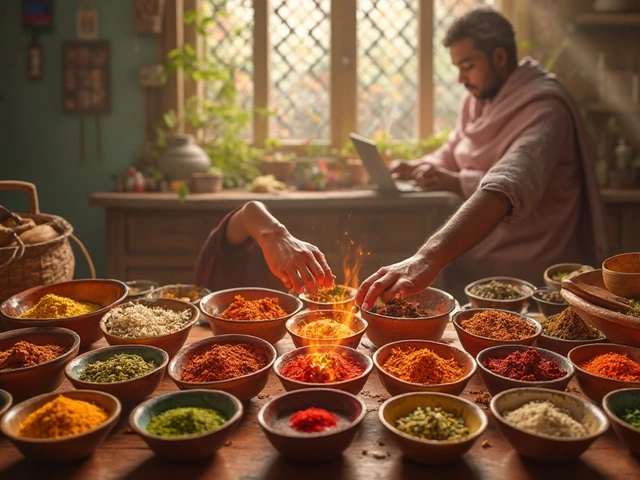Herbs Interaction: What You Need to Know Before You Mix Herbs and Meds
Ever wonder why your doctor asks about herbal supplements after you mention a prescription? Herbs contain active compounds that can change how drugs work in your body. That means a tea you sip for digestion could make a painkiller less effective or boost a blood‑thin‑ner's effect, leading to bleeding. Understanding these interactions helps you avoid surprises and stay healthy.
Common Herbs That Play With Your Medications
Some herbs show up in everyday kitchens, but they can still affect prescription drugs. Garlic and ginkgo biloba thin the blood, so taking them with warfarin or aspirin can increase bleeding risk. St. John’s wort speeds up the liver’s cleaning system, which can lower the levels of antidepressants, birth control pills, and HIV meds. Turmeric is great for inflammation, yet it can also boost the effect of blood thinners.
On the flip side, certain herbs can block drug absorption. Green tea contains catechins that may reduce the uptake of iron supplements. Black pepper (piperine) does the opposite – it can raise drug levels, making side effects more likely. Knowing which herb does what lets you plan when to take them.
Practical Steps to Keep Interactions in Check
First, make a list of every herb, supplement, and spice you use, even the occasional one. Bring that list to each doctor visit and ask the pharmacist to check for red flags. Second, space out timing: if a herb is known to affect drug metabolism, take it several hours before or after the prescription. Third, start with a low dose of any new herb and watch for changes like dizziness, stomach upset, or unusual bruising.
If you notice strange symptoms after adding a new herb, stop it and contact your healthcare provider. They may adjust your medication dose or suggest a safer alternative. Remember, “natural” doesn’t always mean “harmless.” A simple herbal tea can have a powerful effect on the enzymes that process drugs in your liver.
Finally, trust reputable sources. Look for brands that test for contaminants and list exact ingredient amounts. When you buy a product that claims to be “USP verified” or has third‑party lab results, you reduce the risk of hidden compounds that could trigger unseen interactions.
Bottom line: mixing herbs and medicines isn’t a mystery, it’s a routine part of modern healthcare. Keep your list handy, ask the professionals, and schedule herb intake wisely. By staying informed, you protect yourself and make the most of both worlds – modern drugs and age‑old herbs.

What Herbs Should Not Be Taken Together? Avoiding Risky Herbal Mixes
Herbs seem harmless, but some combos can mess with your health instead of helping it. Mixing the wrong herbal supplements might cause anything from a mild tummy ache to a serious risk like bleeding or heart issues. This article breaks down which herbs should never be used together and why. We’ll cover common mistakes, hidden risks, and smart tips for using herbs safely. Get the facts before you pop that next herbal pill.

New Drug Revolutionizing Type 2 Diabetes Treatment
Feb, 20 2025



